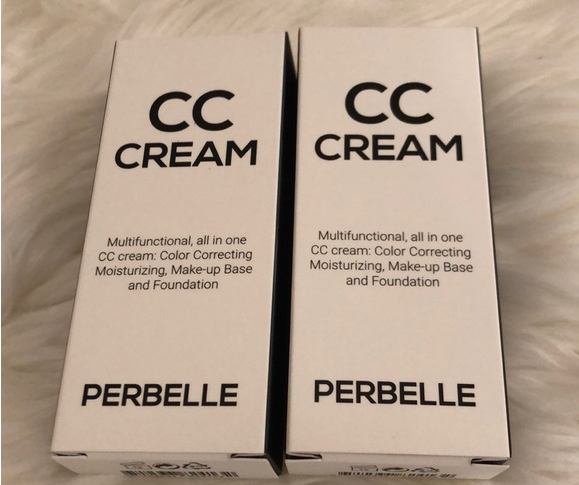When it comes to addiction recovery, more people are looking beyond traditional methods to find a comprehensive, balanced approach. Holistic addiction treatment offers a unique path, focusing on healing the mind, body, and spirit to support long-term recovery. By integrating a variety of therapies—nutritional counseling, mindfulness, physical exercise, and creative outlets like art and music—holistic treatment promotes overall well-being and mental clarity, addressing the physical, emotional, and spiritual aspects of recovery.
What is Holistic Addiction Treatment?
Holistic addiction treatment is a multidimensional approach that considers the person’s entire being, aiming to improve physical, mental, and spiritual health in the recovery process. Holistic approaches goes beyond addressing physical symptoms of substance abuse and focuses on underlying mental health issues, helping clients heal comprehensively. Whether in holistic treatment centers or traditional facilities with complementary therapies, holistic treatment approaches combine evidence-based methods with alternative practices to promote a sense of overall well-being.
Key Components of Holistic Treatment
A holistic treatment plan typically involves a range of therapies that cater to different aspects of a person’s life, ensuring that every area of health is covered.
- Physical Health and Nutrition: Nutritional deficiencies are common in those recovering from substance abuse. Nutritional therapy and counseling can help restore balance, support physical recovery, and aid in managing stress. Healthy meals and physical activities like regular exercise boost physical health, which in turn supports emotional resilience.
- Mental Health Counseling and Holistic Psychotherapy: Addressing mental health is critical to the success of holistic therapy. Holistic addiction therapies often incorporate traditional mental health counseling alongside alternative practices such as mindfulness practices and relaxation techniques to improve mental clarity.
- Spiritual Health and Growth: For many, recovery involves reconnecting with spiritual beliefs. Holistic methods may include spiritual development exercises, meditation, and mindfulness practices to foster inner peace and spiritual healing, strengthening the foundation for a fulfilling recovery journey.
How Holistic Addiction Treatment Benefits Addiction Recovery

Holistic addiction therapies offer several unique advantages over more conventional treatment programs:
- Addressing Underlying Issues: Many individuals with substance use disorders struggle with underlying mental health issues. Holistic treatment programs integrate therapies like family therapy, group therapy, and mental health counseling, offering a comprehensive solution that tackles root causes, not just symptoms.
- Physical Health and Emotional Well-Being: By incorporating physical activities such as yoga, meditation, and massage therapy, holistic therapy focuses on both the physical and emotional health of individuals in recovery. Physical exercise, a balanced diet, and regular sleep patterns help regulate mood, manage stress, and combat withdrawal symptoms.
- Creative and Mindful Outlets: Art therapy, music therapy, and creative therapies like journaling provide outlets for self-expression and emotional release, allowing individuals to process their recovery journey in a healthy way. These holistic treatments encourage personal growth, help with mental clarity, and offer meaningful ways to work through trauma and emotions.
Holistic Addiction Therapy: A Whole-Person Approach
Unlike traditional methods that focus solely on abstaining from substances, holistic addiction therapy targets the whole person, promoting a well-rounded recovery process. This holistic approach to addiction treatment supports each individual in building healthy life skills, maintaining balance, and achieving personal growth as they return to everyday life.

Types of Holistic Therapies in Addiction Recovery
Holistic addiction treatment centers offer a broad range of therapies that aim to heal the whole person—mind, body, and spirit. These therapies provide individuals with the tools they need to strengthen physical resilience, manage emotional challenges, and achieve long-term recovery. These are some of the key holistic therapies used in addiction recovery:
Nutritional Counseling
Nutritional counseling plays a vital role in recovery by addressing the nutritional deficiencies often caused by substance abuse. Drugs and alcohol can deplete essential nutrients, leading to imbalances that negatively impact both physical and mental health. In holistic addiction treatment, nutrition is seen as a cornerstone of recovery, as a balanced, nutrient-rich diet helps to rebuild the body’s strength and supports overall well-being.
Through nutritional counseling, individuals learn how to create healthy meal plans that support detoxification and long-term recovery. This includes education on the benefits of whole foods, like fruits, vegetables, lean proteins, and healthy fats, which promote mental clarity, stabilize mood, and boost energy levels. Additionally, addressing nutritional gaps can help alleviate withdrawal symptoms, reduce cravings, and improve immune function, making holistic recovery a smoother process.
Mindfulness Practices
Mindfulness practices such as meditation, yoga, and deep breathing exercises are central components of holistic therapy. These practices help individuals cultivate a greater awareness of their thoughts, emotions, and physical sensations in the present moment. This heightened awareness enables people to identify triggers for substance use and develop healthier responses to stress, anxiety, and negative emotions.
Meditation promotes relaxation and mental clarity, while yoga combines physical exercise with mental discipline, offering both emotional balance and improved physical strength. Regular engagement in mindfulness exercises can reduce feelings of anxiety, depression, and cravings, allowing individuals to remain focused on their recovery goals. These practices also contribute to long-term emotional regulation, stress management, and inner peace, making them essential tools for maintaining sobriety.
Alternative and Complementary Therapies
In addition to traditional counseling and therapies, many holistic addiction treatment programs incorporate alternative and complementary therapies to address the physical and emotional toll of addiction. These treatments help alleviate the discomfort associated with withdrawal symptoms and offer additional support throughout the recovery process.
- Massage Therapy: Massage helps relieve muscle tension, promotes relaxation, and improves circulation. It also stimulates the release of endorphins—natural painkillers that enhance mood. By helping to reduce physical and emotional stress, massage therapy supports recovery by promoting a sense of calm and well-being.
- Aromatherapy: Essential oils like lavender, peppermint, and eucalyptus are used in aromatherapy to promote relaxation, reduce stress, and improve mood. This therapy can help individuals manage anxiety and depression, and it provides a non-invasive way to alleviate cravings and withdrawal symptoms.
These therapies are designed to work alongside traditional treatment methods to enhance physical recovery, manage stress, and support emotional healing, helping individuals feel more grounded, focused, and in control of their recovery journey.
Spiritual and Emotional Health Focus
In holistic addiction treatment, healing the spirit is just as important as healing the mind and body. Many individuals in recovery find that reconnecting with their spiritual beliefs provides them with a deeper sense of purpose and direction. Spiritual development exercises, such as meditation, prayer, and nature therapy, help individuals explore their beliefs, values, and sense of meaning in life. These practices can be deeply restorative, providing individuals with the inner strength needed to overcome addiction.
Additionally, holistic treatment centers emphasize the importance of emotional health in recovery. Addressing unresolved trauma, depression, or anxiety is critical for long-term sobriety, as these issues often contribute to substance use. Group therapy and family therapy are commonly used to address emotional challenges, improve communication, and strengthen relationships. These therapies provide a safe space for individuals to express their feelings, share experiences, and gain support from others who are on similar journeys.
Group therapy fosters connection and accountability, helping participants build trust and reduce feelings of isolation, while family therapy works to heal damaged relationships and restore healthy dynamics within the family unit. Both of these therapies support emotional stability and contribute to long-term recovery success.
Finding the Right Holistic Treatment Center for You
Choosing the right holistic drug treatment center in Los Angeles can make a profound difference in the recovery journey. Some key factors to consider include the range of holistic practices offered, the inclusion of evidence-based treatments, and the focus on supporting long-term recovery goals. Ideally, holistic treatment programs will offer a balanced mix of traditional treatment methods and complementary therapies to create a supportive, nurturing environment.

Embracing Holistic Addiction Treatment for Long-Term Healing
Holistic treatment offers an enriched experience for individuals seeking to overcome substance abuse and achieve personal growth. By addressing mental health, physical symptoms, and spiritual health in unison, holistic addiction treatment provides a foundation for lasting recovery. This holistic addiction treatment approach promotes healing by supporting the whole person, helping clients build resilience, and giving them the tools they need to thrive in everyday life.
Photos by Canva










